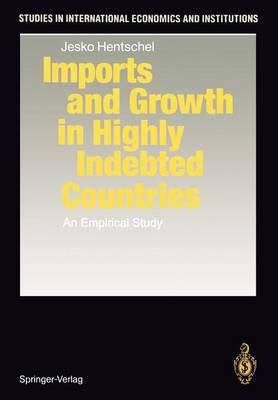A real imports of capital and intermediate goods declined
sharply for highlyindebted countries in the 1980s, these
economies were faced with the need tosubstitute previously
imported factors of production with domestic capital and
labor. The study empirically analyzes the degree of import
dependence of twelve developing countries. Estimates of the
short-run elasticity of substitution characterize both
imported capital and intermediate goods to behave like
complements in the production process in the developing
countries. Long-run substitution elasticites differ
considerably among the group of economies, especially for
imported machinery and equipment. The results indicate that
inward-oriented strategies have not achieved the aim of
reducing the import dependence of the developing economies.
In order to visualize theimplications of the differing
degree of import dependence, a partial equilibrium
econometric model is used to analyze the reaction of the
trade account on external shocks and domestic policies in
Columbia and Ecuador. Simulations show that the dependence
on imported production means can transform an "adjustment
with growth" of the external account intoan "adjustment or
growth" controversy.
- ISBN13 9783642467721
- Publish Date 8 March 2012 (first published 1 February 1992)
- Publish Status Active
- Publish Country DE
- Publisher Springer-Verlag Berlin and Heidelberg GmbH & Co. KG
- Imprint Springer-Verlag Berlin and Heidelberg GmbH & Co. K
- Edition Softcover reprint of the original 1st ed. 1992
- Format Paperback
- Pages 209
- Language English
